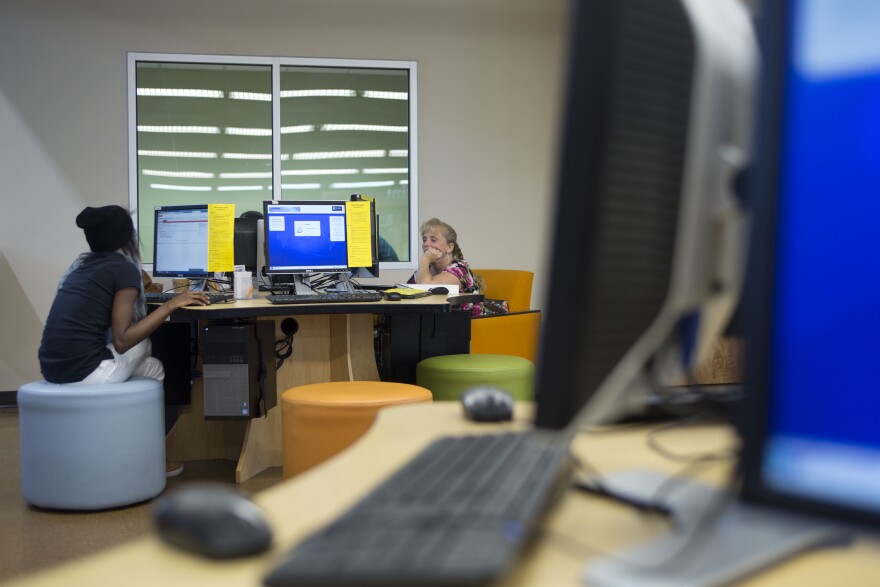At 3 p.m., the computer lounge at the Pflugerville Public Library is bustling. College sophomore Emily Margaretich is hard at work trying to sign up for summer classes on her college’s website. When she’s done with that, she’ll deal with financial aid and do some online banking.
Margaretich does all this work in the library, because she and her mom don’t have home internet access.
“I get a lot of my college stuff done on my phone, but it’s hard to do that because a lot of college websites don’t really have mobile versions that work,” Margaretich said.

She does have a laptop, so she’s figured out some workarounds.
“I usually go to one of my friends’ houses,” she said. “Or I go to Target where you can sit in the Starbucks, or go to McDonalds, but here is way better than Starbucks.”
Roughly a quarter of American households don’t have a home internet connection. But a new initiative in some public libraries is trying to help bridge that digital divide.
“Having internet access is increasingly becoming the air we breathe,” said Sharon Strover. She directs the Technology and Information Policy Institute at UT Austin.
She’s studying a new approach to increasing internet access: library hotspot lending programs.

Hotspots are devices that plug into an electrical outlet and use a cellular network to provide a user with connectivity.
New York City and Chicago public libraries have been testing out programs where people check out hotspots just like books.
“We found that people are wild about this program. They absolutely love it,” Strover said. “You can use it anywhere - you can use it on the subway, you can use it in a park, you can take it to work with you.”
Cities around the country are trying similar programs. Strover and her colleagues just got a big grant to study how they could work in more rural settings.
Jennifer Coffey is director of the Pflugerville Public Library, and she wants to try to make the program work. Hotspot lending, she said, is a natural extension of libraries’ new online role.
“We’re able to provide a lot more electronic resources, and it’s almost a 24-hour library. So now we’re just rethinking how we provide digital access to people.”
She said she plans to bring some form of hotspot lending to the library soon.
Margaretich likes the idea.
“Being able to checkout a hotspot would be way easier, and helpful,” she said.
Though her mom might not like it as much.
“My mom would definitely say having no internet is better for my brain, but I would disagree,” Margaretich said.
Still, she does see a potential downside to unlimited access:
“I would be watching Netflix constantly,” she said, “and not getting any work done.”



